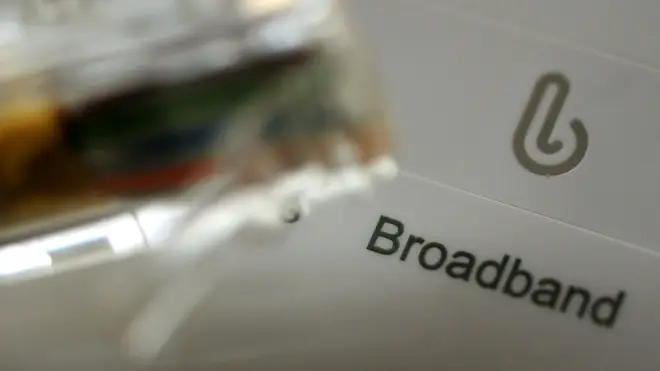
Clive Bull 1am - 4am
27 April 2023, 09:27

Ofcom said that access to the internet seems to be ‘plateauing’.
Ofcom has said that many consumers are “confused” about the words used to talk about broadband provision in the UK.
At a meeting of the Communications and Digital Committee at the House of Lords on Tuesday, the telecoms watchdog was asked about the “take up” of broadband following the increase in full fibre network rollout.
Ofcom’s director of telecoms consumer protection Cristina Luna-Esteban said: “What we have found is that many consumers don’t actually understand what is the benefit of full fibre to them and they’re confused sometimes about the terminology.
“What are these different packages? (Are) all fibres… all the same?”
The next session of our inquiry into digital exclusion this afternoon at 1.15pm, with:
📲 @hugodrayton from @CitizensOnline1 🧑💻 @ellenejudson from @Demos 💻 @LiamHalligan 🌐 @Ofcom
📺Watch live: https://t.co/e97ep93eoJ #digitalinclusion
— Lords Communications and Digital Committee (@LordsCommsCom) April 25, 2023
She added: “We expect that switching between different types of fibre providers, different types of technologies will make it so much easier for customers, so that will also help take up.”
The comments follow Ofcom urging broadband providers to better promote bargain deals for low-income households after finding millions could be missing out.
On Monday, the watchdog said more than half of low-income households do not know about cheaper broadband and phone deals, known as social tariffs.
Lindsey Fussell, group director for networks and communications at Ofcom, also told the committee that around 7% of households in the UK do not have access to the internet – compared to 11% before the pandemic.
More than half of low-income households are in the dark about bargain broadband deals that could save them around £200 a year.
Along with @WhichUK we’re urging eligible customers to sign-up to social tariffs and save money.
Find out more: https://t.co/HpDSeCg9bW pic.twitter.com/gLpwVKbyjb
— Ofcom (@Ofcom) April 24, 2023
She added: “(It) now seems to be plateauing. When we ask people why? They say well, around 70% of them say ‘Well, it’s because I can’t see any reason why I would need to go on the Internet’.
“Around 20% say ‘it may be to do with affordability’ and around 20% say ‘it’s too complex’.”
She added that a lot of people also have a “lack of skills and confidence, because perhaps they can’t afford the same devices as others”.
When asked about the trade-offs with having broadband as a formalised utility, Ms Fussell also said she sees the telecommunications service as “essential”.
She added: “I think there are all sorts of protections in the broadband and mobile space, which aren’t available to us as consumers in others.”
Ms Fussell also said: “I think it wouldn’t be right to think about ourselves as regulating broadband in the same way as we do water and electricity and that’s precisely because these are industries that have grown through technological innovation.”